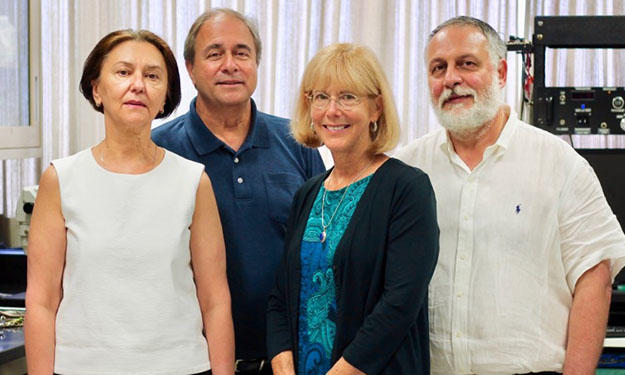Targeting Bone Cancer Pain

Severe pain is a common symptom of many types of bone cancers. As patients and providers seek new treatments for pain that do not involve opioids – which are known to have adverse side effects including addiction - scientists at the University of Minnesota are seeking new solutions.
A $1.9 million grant awarded this month to Professor Donald Simone, PhD, and an interdisciplinary team of scientists will advance this work to understand and treat bone cancer pain. The grant from the National Cancer Institute within the National Institutes of Health will support the team’s investigation of the underlying causes of cancer pain, specifically the role of cancer cell - neuron interactions that lead to pain.
“We are eager to understand how cancer cells interact with neurons to produce pain so that we can interrupt this interaction at the molecular level and reduce pain,” said Donald Simone, principal investigator for the study and professor at the University of Minnesota School of Dentistry. “As bone cancers are extremely painful, this work might have significant clinical impact.”
The five-year, multifaceted research study will explore more deeply molecular mechanisms of pain transmission from cancer cells to the nervous system and is expected to provide insights into new strategies for managing bone cancer pain.
Recent studies by this team revealed that cancer cells release nanoparticles called exosomes. Exosomes carry molecules that excite nerve endings and signal pain. Understanding how exosomes excite neurons and developing new approaches to prevent this communication may lead to new treatments to alleviate pain from cancer.
- Donald A. Simone, Ph.D. Dept, of Diagnostic and Biological Sciences, U of M School of Dentistry
- Iryna A. Khasabova, Ph.D. Dept. of Diagnostic and Biological Sciences, U of M School of Dentistry
- Sergey G. Khasabov, M.D., Ph.D. Dept. of Diagnostic and Biological Sciences, U of M School of Dentistry
- Virginia S. Seybold, Ph.D. U of M Medical School, Dept. of Neuroscience, U of M School of Dentistry

Donald Simone, PhD, is the principal investigator on a new five-year study targeting cancer pain.